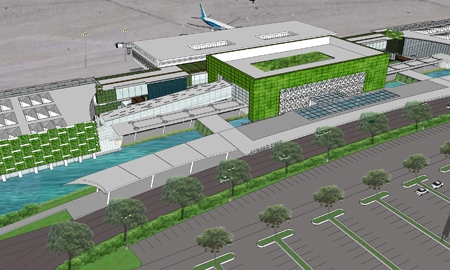The Indonesian archipelago comprises more than 17,500 islands and its total area of 735,358 square miles makes it the 15th largest country in the world. Its population of over 248 million people is unevenly spread. For example, the islands of Java and Sumatra hold 136 million and 50 million people respectively, whereas Bali and Nusa Tenggara are home to only 13 million combined.
Infrastructure development is fundamentally the greatest area of concern if the nation’s economy is to continue moving forward. “That is where our role as the Ministry of Transportation comes in, to be a leader in implanting inter-island and international connectivity,” says Dr. Bambang Susantono, Vice Minister of Transportation. “We have to build many airports, as well as ports for the shipping industry, to support our economic growth. That is the micro-situation that we are facing right now.”
According to Prof. Armida Salsiah Alisjahbana, State Minister for National Development Planning and the head of the National Development Planning Agency (Bappenas), Indonesia’s economy will grow by up to 7% in the next few years if investment in infrastructure development is increased. Currently, infrastructure investment accounts for 4% of GDP, lower than the ideal minimum of 5%. In a written statement she issued last November, the Minister said that sustainable infrastructure investment was needed to boost national competitiveness and she encouraged both state and private efforts to realize the Master Plan for Acceleration and Expansion of Indonesian Economic Development (MP3EI).
“We definitely think the master plan has set out a vision to transform Indonesia’s economy into one of the top 10 by 2025,” says Stefan Koeberle, the World Bank’s Country Director for Indonesia. “There have been groundbreaking structural changes taking place, setting the pace for growth. However, there are challenges; Indonesia can reach a much higher level of growth if it addresses some of these fundamental challenges and most importantly provide a platform for infrastructure development.”
He believes the MP3EI lays out a very strong role not only for state-owned enterprises but also the private sector, and that a focus on public-private partnerships (PPPs) is “definitely something that needs addressing.”
According to Yasti Soepredjo Mokoagow, Chairman of the House of Representatives Commission V, the potential for private initiatives is across the board. “We do not think there is any particular sector that has the leading role. We are hoping there will be a lot of investors, investing equally, without single major players,” she says.

0 COMMENTS